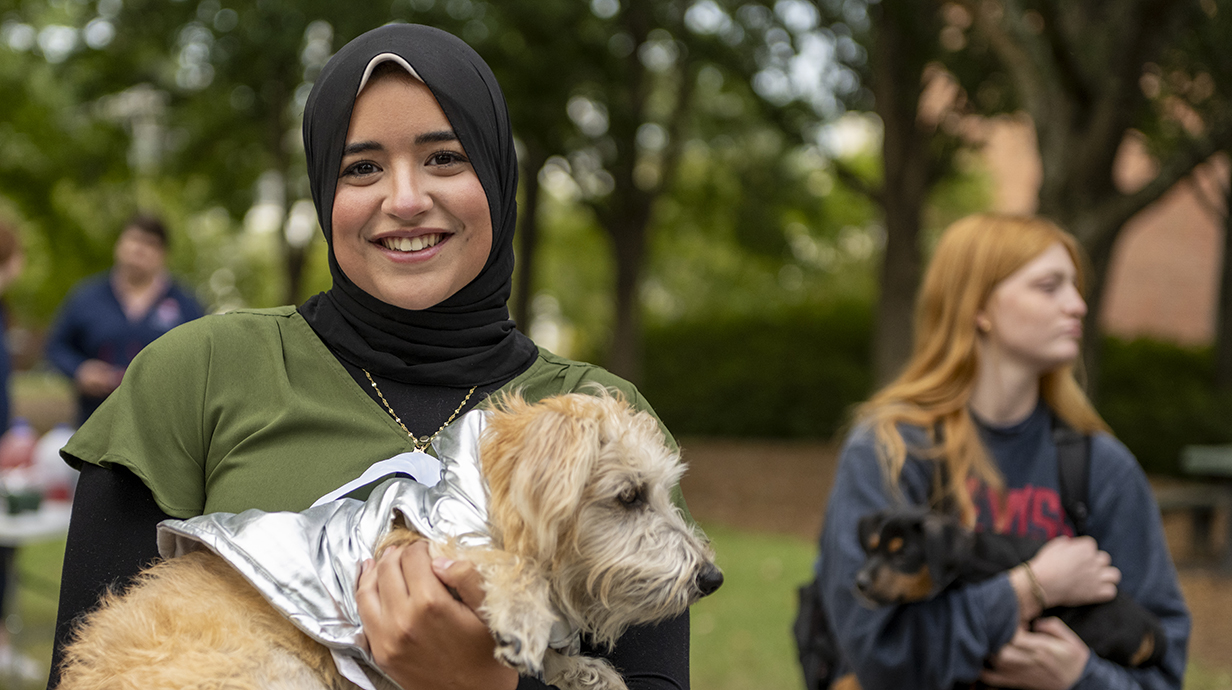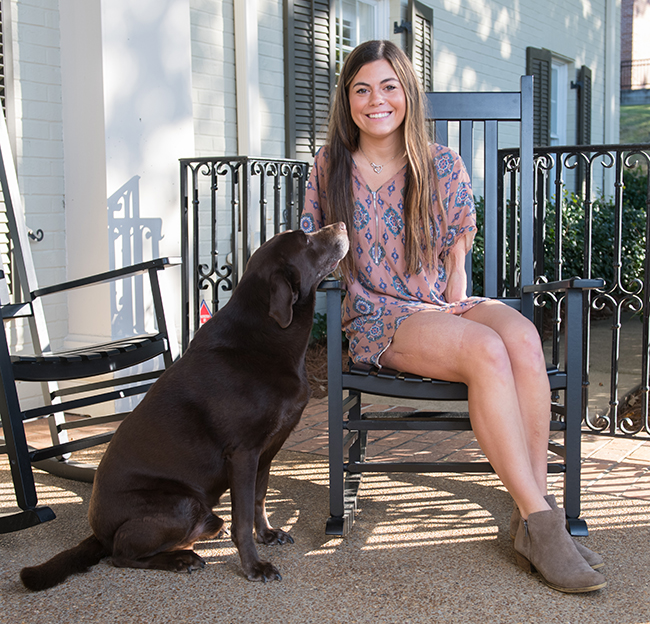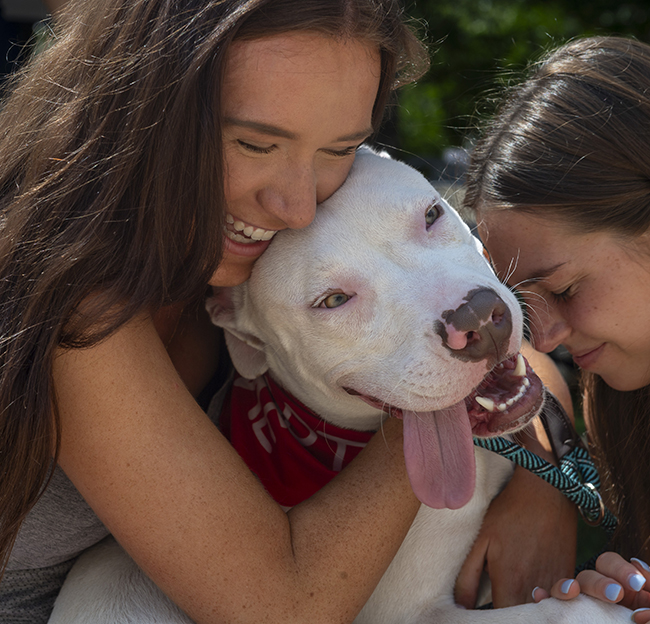Animals on Campus
Learn about the policies and guidelines for service animals and emotional support animals on campus.

Service & Support Animals

Service Animals
At the University of Mississippi, we fully support students, faculty, and staff who need service animals to access campus spaces. Service animals are highly trained dogs (or sometimes miniature horses) that assist with specific tasks related to a disability, and they are welcome in all public areas where the general public is allowed. Service animals are working animals and must be able to focus on their jobs.

Emotional Support Animals
Emotional Support Animals provide comfort and companionship to individuals with emotional or psychological needs. While they’re allowed in campus housing, ESAs do not have the same public access rights as service animals and require documentation from a healthcare provider to be approved.
Service Animal Policy
The ability of students, faculty, staff, and visitors to access campus with the use of a service animal is a critical aspect of the University’s commitment to full inclusion for those with disabilities. To that end, the University follows all federal guidelines and regulations as they apply to service animals.
As defined by the US Department of Justice, a service animal is a dog, and in some cases, a miniature horse, that has been individually trained to perform a specific task, or tasks, for those with disabilities.
- There are no restrictions on the breed or size of a service dog.
- With an exception for reasonable health and safety issues, service animals may accompany their handler (the disabled person using the service animal) to any environment in which the general public is allowed.
- Service animals are not required to be registered or certified by any entity and handlers are not required to submit documentation indicating the animal is a service animal.
- They are also not required to wear identifying service animal vest or to carry a service animal license.
Service animals are NOT pets and should not be treated as such. Service animals are working animals and must be able to focus on their jobs. Service animals should not be petted, played with, or fed without the express permission of the handler.
Allowable Inquiries Regarding Service Animals
If it is not obvious what service an animal is trained to provide, it is allowable to ask only two questions of the handler:
- Is the dog a service animal because of a disability? This is a yes or no question. Staff cannot ask for specifics regarding the handler’s disability.
- What specific tasks has the dog been trained to perform? Staff cannot ask that the dog demonstrate the tasks it has been trained to perform.
If the reason for the service animal is obvious, the allowable questions should be avoided.
Exclusions
Service animals and emotional support animals or comfort animals can only be excluded from an allowable environment if:
- The handler is not in full control of the animal. A service animal must be harnessed, leashed, or tethered while in a public place, except when the use of such hinders or interferes with the duties of the service animal. In these situations, the handler must use voice commands, hand signals, or other means to control the animal. Handlers may not allow the animal to wander an environment.
- The animal is disruptive or out of control and the handler does not take action to control the animal’s behavior. Examples of disruptive behavior include excessive barking and/or whining, damaging the property of the University or others, and threatening behavior including growling, snapping, or lunging.
- The animal is not house trained.
- The animal poses a health or safety risk in a particular environment. For instance, a service animal may be allowed in a patient’s hospital room but not in a surgical suite or it may be allowed on the deck of a public pool but not in the pool itself.
- The presence of a service animal or emotional support/comfort animal fundamentally alters a program or environment. In most settings, a service animal will not create a fundamental alteration of a program or environment. For example, a service animal may create a fundamental alteration if a residence hall has set aside an area specifically for students who have allergies to dogs.
Certification or Licensing of a Service Animal
As stated, service animals are not required to be certified or licensed. There are organizations and individuals that sell service animal or emotional support animal certificates or registration documents online. The ADA and the Department of Justice does not recognize these documents as proof a dog is a service animal or emotional support animal.
Additional Information
If a university staff member has questions about a service animal or feels uncomfortable determining is a dog is a service animal, Student Disability Services should be contacted for assistance.
More information about service animals and emotional support/comfort animals:
- ADA Requirements for Service Animals
- FAQs About Service Animals and the ADA
- Service Animals and Emotional Support Animals
Please do not hesitate to contact us with any questions or concerns:
